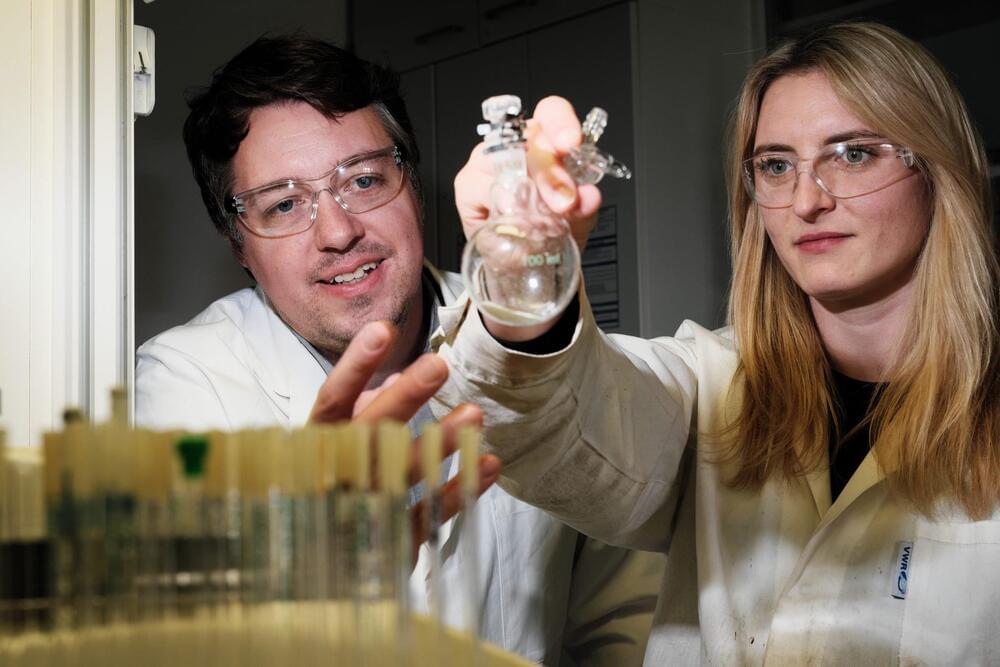The first and the best-known metallocene is ‘ferrocene’, which contains a single iron atom. Sandwich complexes are now standard topics in inorganic chemistry textbooks, and the bonding and electronic structure of metallocenes are covered in undergraduate chemistry courses. These sandwich molecules are also significant in industry, where they serve as catalysts and are utilized in the creation of unique metallopolymers.
Nobody knows exactly how many sandwich molecules there are today, but the number is certainly in the thousands. And they all have one thing in common: a single metal atom located between two flat rings of carbon atoms. At least that was what was thought up until 2004, when a research group from the University of Seville made a startling discovery.
The Spanish research team succeeded in synthesizing a sandwich molecule that contained not one but two metal atoms. For a long time, this ‘dimetallocene’ containing two zinc atoms remained the only example of its kind until a group in the UK succeeded last year in synthesizing a very similar molecule that contained two beryllium atoms. But now, Inga Bischoff, a doctoral student in Dr. André Schäfer’s research team at Saarland University, has taken things one big step further. She has managed to synthesize in the laboratory the world’s first ‘heterobimetallic’ sandwich complex – a dimetallocene that contains two different metal atoms.









Comments are closed.